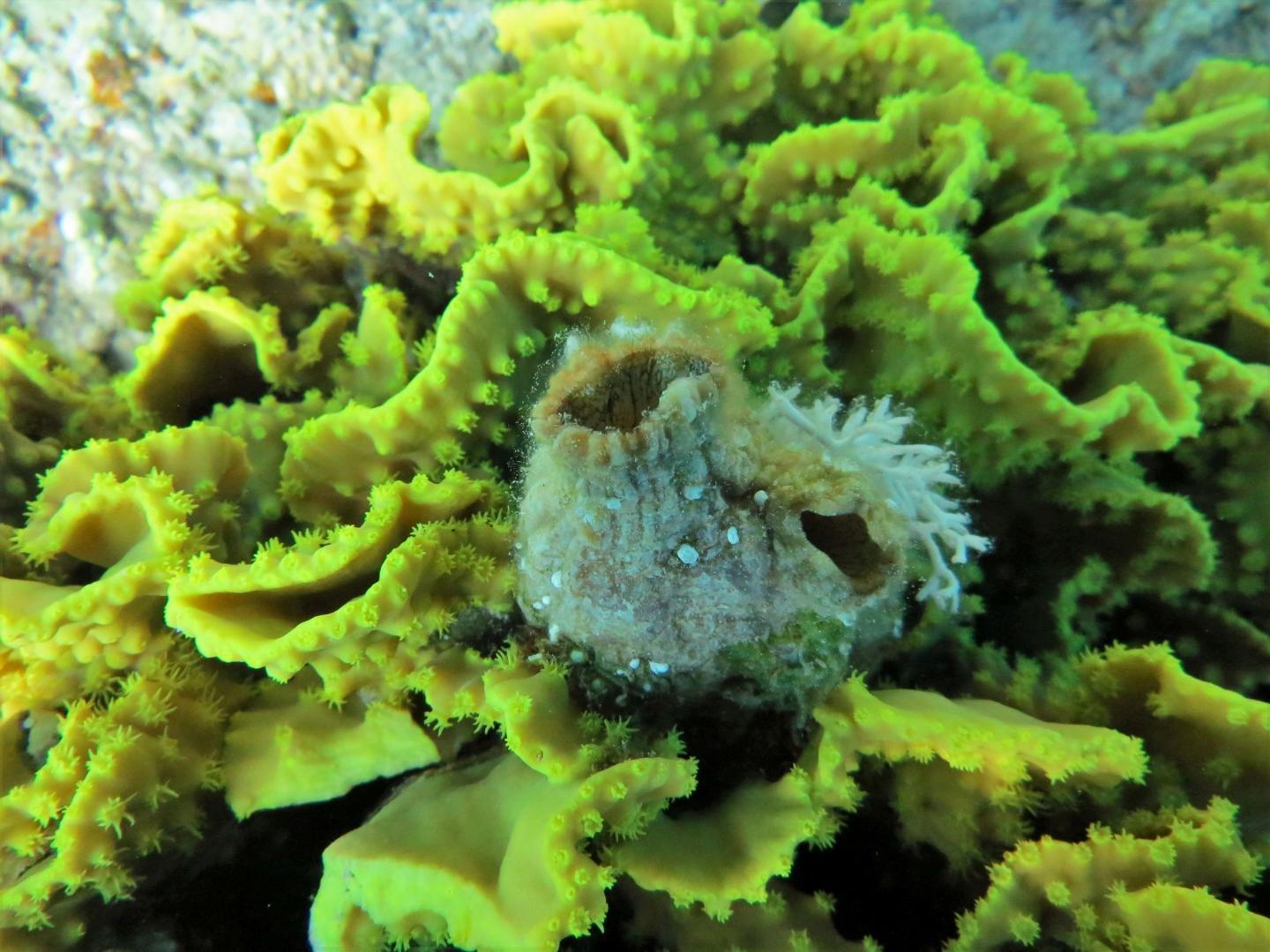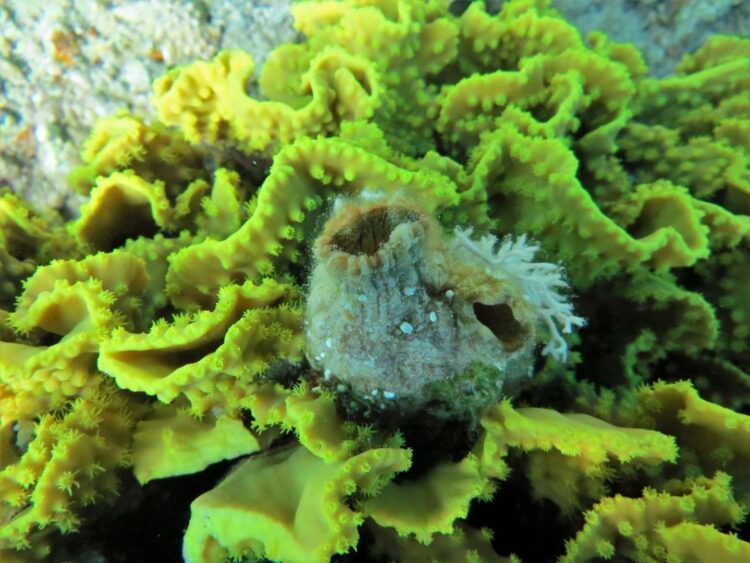A surprising discovery in the Gulf of Eilat

Credit: Tal Zaquin
An extraordinary discovery in the Gulf of Eilat: Researchers from Tel Aviv University have discovered a species of ascidian, a marine animal commonly found in the Gulf of Eilat, capable of regenerating all of its organs – even if it is dissected into three fragments. The study was led by Prof. Noa Shenkar, Prof. Dorothee Huchon-Pupko, and Tal Gordon of Tel Aviv University’s School of Zoology at the George S. Wise Faculty of Life Sciences and the Steinhardt Museum of Natural History. The findings of this surprising discovery were published in the leading journal Frontiers in Cell and Developmental Biology.
“It is an astounding discovery, as this is an animal that belongs to the Phylum Chordata – animals with a dorsal cord – which also includes us humans,” explains Prof. Noa Shenkar. “The ability to regenerate organs is common in the animal kingdom, and even among chordates you can find animals that regenerate organs, like the gecko who is able to grow a new tail. But not entire body systems. Here we found a chordate that can regenerate all of its organs even if it is separated into three pieces, with each piece knowing exactly how to regain functioning of all its missing body systems within a short period of time.”
There are hundreds of species of ascidians, and they are found in all of the world’s oceans and seas. Anyone who has ever opened their eyes underwater has seen ascidians without knowing it, as they often camouflage themselves as lumps on rocks and are therefore difficult to discern. The animal that is the subject of this new study is an ascidian from the species Polycarpa mytiligera, which is very common in the coral reefs of Eilat.
“By all accounts, the ascidian is a simple organism, with two openings in its body: an entry and an exit,” says Tal Gordon, whose doctoral dissertation included this new research. “Inside the body there is a central organ that resembles a pasta strainer. The ascidian sucks in water through the body’s entry point, the strainer filters the food particles that remain in the body, and the clean water exits through the exit point. Among invertebrates, they are considered to be the closest to humans from an evolutionary point of view.”
Ascidians are famous for their regenerative ability, but until now these abilities have been identified mainly in asexual reproduction. Never before has such a high regenerative capacity been detected in a chordate animal that reproduces only by sexual reproduction.
“There are species of ascidians that perform simple regeneration in order to reproduce,” Gordon says. “These are species with a colonial lifestyle, with many identical individuals connected to one another. They replicate themselves in order to grow. In contrast, the ascidian from Eilat, Polycarpa mytiligera, is an organism with a solitary lifestyle, without the capacity for asexual reproduction, similar to humans. In previous studies we showed that this species is able to regenerate its digestive system and its points of entrance and exit within a few days. But then we wanted to see if it is capable of renewing all of its body systems. We took a few individual ascidians from Eilat and dissected them into two parts, which were able to replenish the removed sections without any problem. In a subsequent experiment, we dissected several dozen ascidians into three fragments, leaving a part of the body without a nerve center, heart, and part of the digestive system. And contrary to our expectations, not only did each part survive the dissection on its own, all of the organs were regenerated in each of the three sections. Instead of one ascidian, there were now three. This is very astonishing. Never before has such regenerative capacity been discovered among a solitary species that reproduces sexually, anywhere in the world.”
Prof. Shenkar concludes: “Since the dawn of humanity, humans have been fascinated by the ability to regenerate damaged or missing organs. Regeneration is a wonderful ability that we have, to a very limited extent, and we would like to understand how it works in order to try and apply it within our own bodies. Anyone snorkeling in the Gulf of Eilat can find this intriguing ascidian, who may be able to help us comprehend processes of tissue renewal that can help the human race.”
###
Media Contact
Noga Shahar
[email protected]
Related Journal Article
http://dx.





